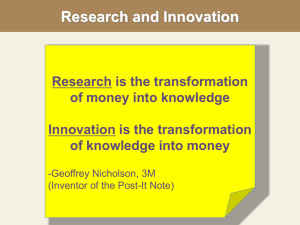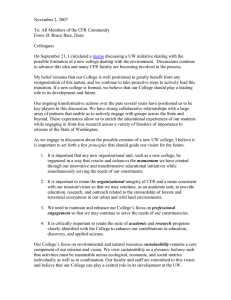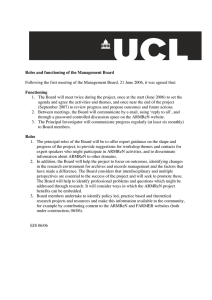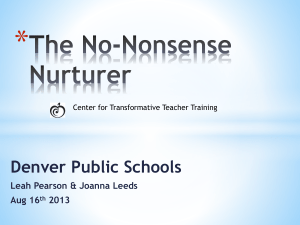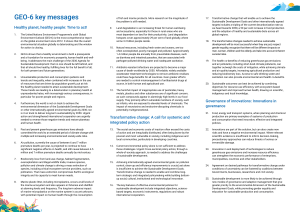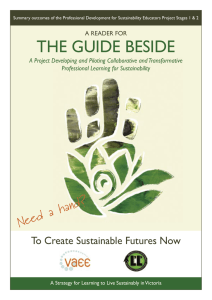September 21, 2007 To: All Members of the CFR Community
advertisement
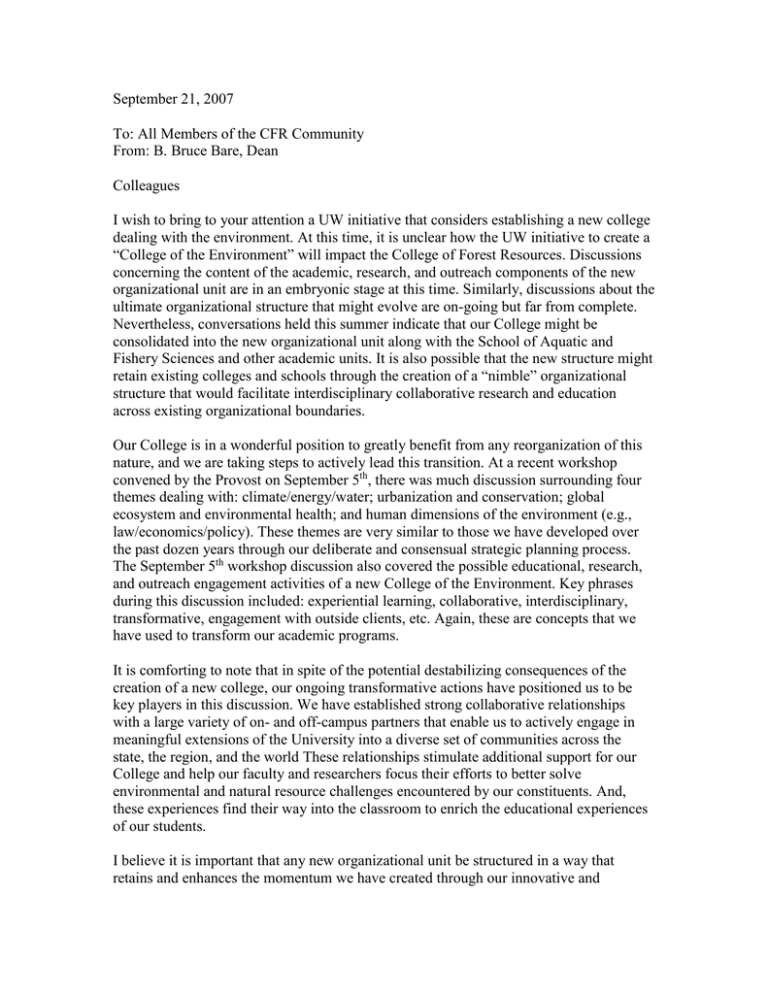
September 21, 2007 To: All Members of the CFR Community From: B. Bruce Bare, Dean Colleagues I wish to bring to your attention a UW initiative that considers establishing a new college dealing with the environment. At this time, it is unclear how the UW initiative to create a “College of the Environment” will impact the College of Forest Resources. Discussions concerning the content of the academic, research, and outreach components of the new organizational unit are in an embryonic stage at this time. Similarly, discussions about the ultimate organizational structure that might evolve are on-going but far from complete. Nevertheless, conversations held this summer indicate that our College might be consolidated into the new organizational unit along with the School of Aquatic and Fishery Sciences and other academic units. It is also possible that the new structure might retain existing colleges and schools through the creation of a “nimble” organizational structure that would facilitate interdisciplinary collaborative research and education across existing organizational boundaries. Our College is in a wonderful position to greatly benefit from any reorganization of this nature, and we are taking steps to actively lead this transition. At a recent workshop convened by the Provost on September 5th, there was much discussion surrounding four themes dealing with: climate/energy/water; urbanization and conservation; global ecosystem and environmental health; and human dimensions of the environment (e.g., law/economics/policy). These themes are very similar to those we have developed over the past dozen years through our deliberate and consensual strategic planning process. The September 5th workshop discussion also covered the possible educational, research, and outreach engagement activities of a new College of the Environment. Key phrases during this discussion included: experiential learning, collaborative, interdisciplinary, transformative, engagement with outside clients, etc. Again, these are concepts that we have used to transform our academic programs. It is comforting to note that in spite of the potential destabilizing consequences of the creation of a new college, our ongoing transformative actions have positioned us to be key players in this discussion. We have established strong collaborative relationships with a large variety of on- and off-campus partners that enable us to actively engage in meaningful extensions of the University into a diverse set of communities across the state, the region, and the world These relationships stimulate additional support for our College and help our faculty and researchers focus their efforts to better solve environmental and natural resource challenges encountered by our constituents. And, these experiences find their way into the classroom to enrich the educational experiences of our students. I believe it is important that any new organizational unit be structured in a way that retains and enhances the momentum we have created through our innovative and transformative educational initiatives while simultaneously serving the needs of our constituents. Retaining organizational integrity and maintaining existing professional strengths in programs with identified constituencies and political backing within the state and region are key components to future success of the UW initiative. It is also important to retain the suite of academic programs closely identified with the College to enable our contributions to the state and region to be readily recognized and supported. Our College’s focus on environmental and natural resources sustainability remains a core component of our mission and vision. This concept supports the four themes currently proposed for the new college as well as the efforts of our faculty and staff to effectively promote interdisciplinary research at the UW and beyond. Creation of an advanced institute or center for global sustainability could serve as the focal point for the UW's commitment to a sustainable future for the state and region. Our faculty and staff are committed to this vision and believe that our College can play a central role in its development. I urge all members of the College community to become involved in these discussions as they unfold in the coming weeks and months.


